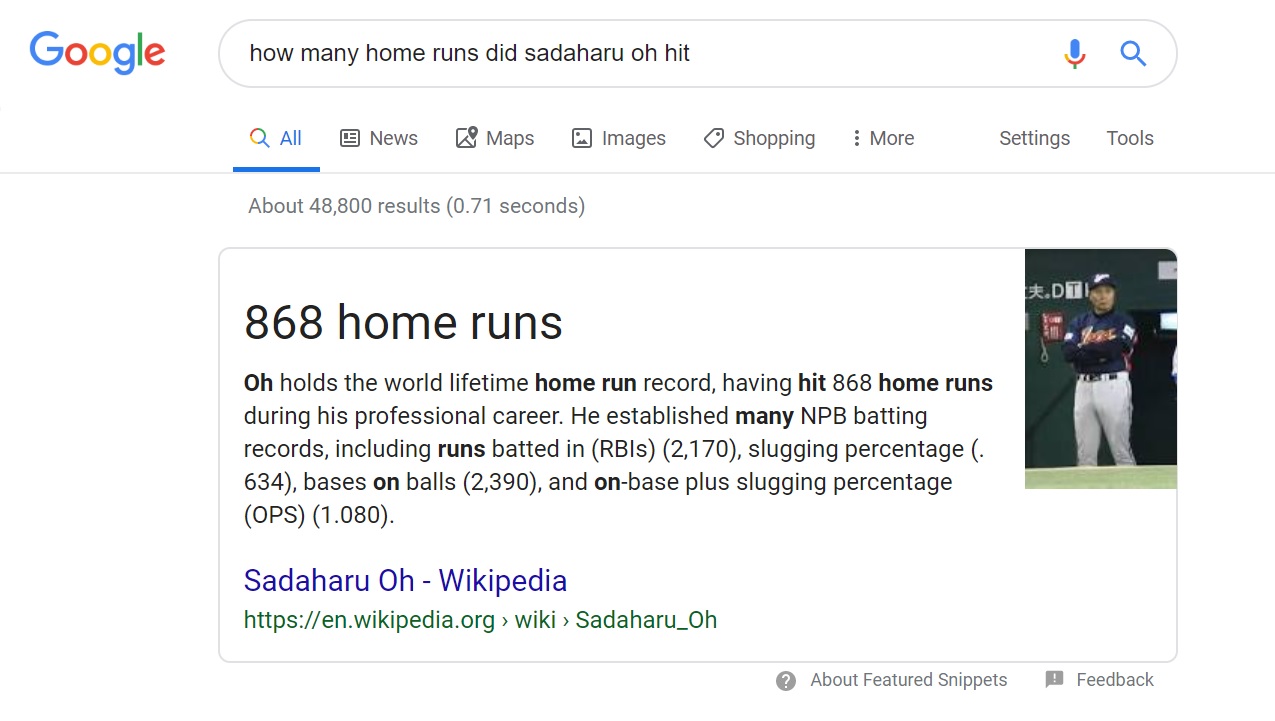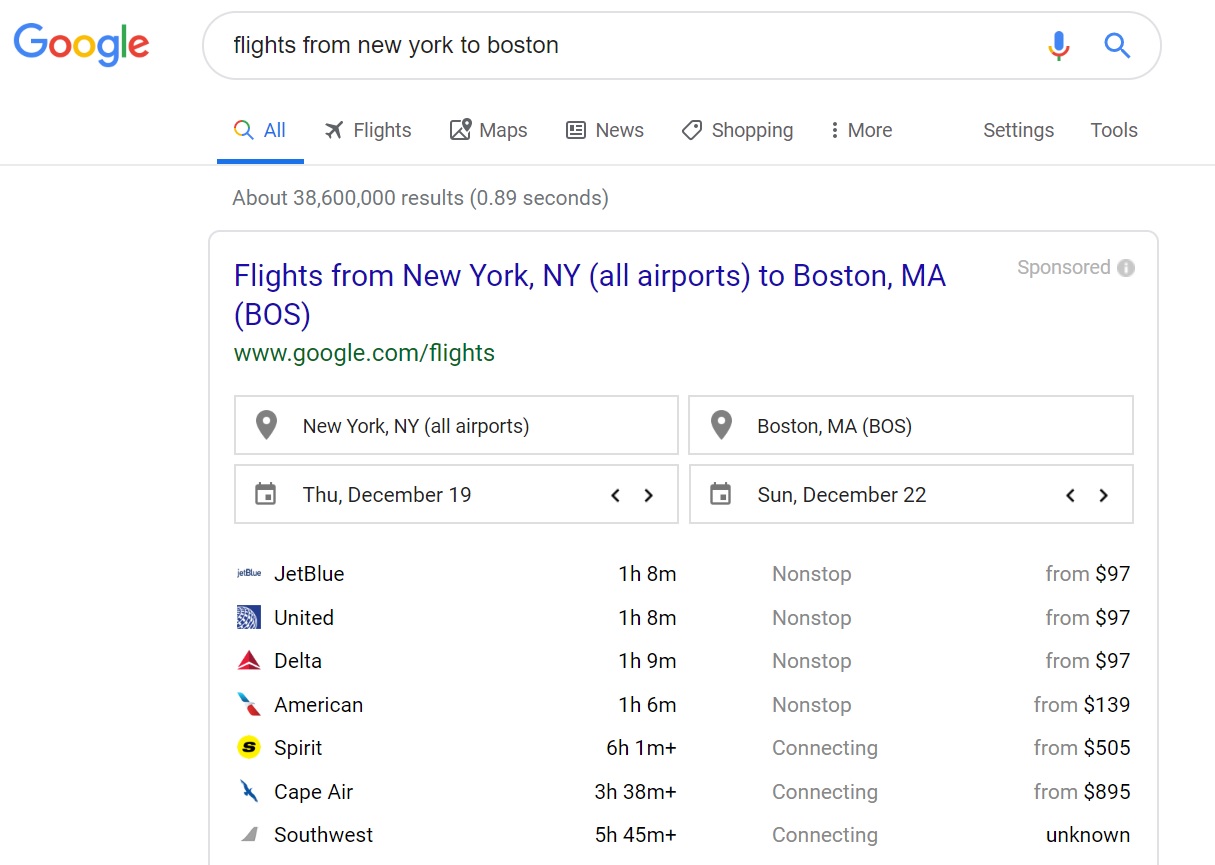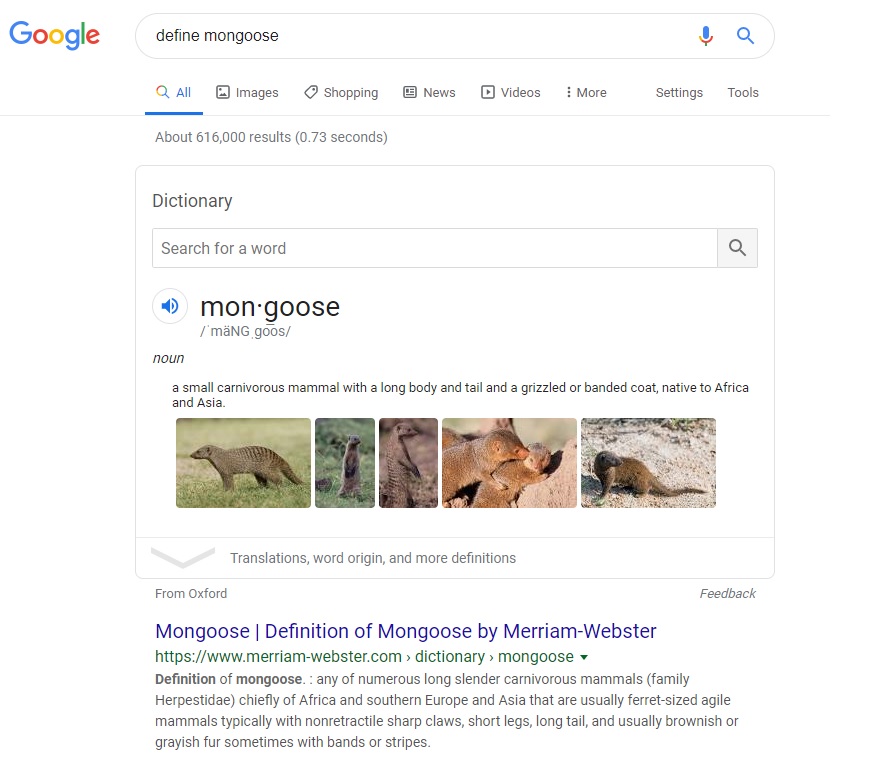One of the most disturbing trends in the search engine optimization (SEO) world today is the fallout from Google’s attempts to answer as many search queries as possible from the search engine results page (SERP). The intent is honorable enough: Give search engine users the answers they want, as quickly as possible, whenever feasible.
The disturbing repercussion, though, is that it suddenly forces websites compete with the very search engine they’re trying to market themselves on.
Thankfully, though, the legal industry has largely been spared this problem, precisely because many search queries in the legal field don’t have the One True Answer that Google aims to provide.

The Problem: Google is Trying to Soak Up Web Traffic With On-SERP Answers
Over the past few years, Google has added more and more features to its SERPs that are designed to satisfy users asking questions with so-called “One True Answer.”

This initiative, while it is great for the convenience of Google’s users, comes with serious repercussions for companies that are trying to attract those same users. Like this one:

Companies like Kayak, Orbitz, and Expedia are in the business of providing this precise information. But there they are, ranked one through three, below Google’s ranking of itself.
Fuel for the “Zero-Click Trend”
SERP features like these are the driving factors behind the proliferation of “zero click searches” – search queries that are entered into Google, but don’t end with a click on any of the results, there.
Back in 2016, only 12% of queries went click-less. When we covered this phenomenon back in June, it had jumped to 49%. On mobile devices, click-less search queries are estimated to be at 56%.
The impact that has had on websites that used to dominate those search queries has been extreme.
Take, for example, web traffic that goes to dictionary websites, like Merriam-Webster. Google rolled out a SERP feature that pulls content from one of these websites and displays it above the search results whenever anyone runs a search query for “define” and then a word:

See Merriam-Webster beneath the boxed listing? Why would anyone ever go there, now that the answer is displayed so prominently, right above it?
Lack of SERP Features in Legal Field Helps Law Firms
While Google’s efforts to provide the One True Answer straight on the SERP have upended some industries, the legal field has not been one of them, yet. Many search queries in the legal field simply don’t have a single correct answer, deterring Google from making an attempt at solving a question on the SERP.
The legal field has not gone completely unscathed, though the effects of Google’s efforts have not been significant.
For example, Google features like the local box have definitely created some zero-click searches, as users look for a personal injury lawyer or criminal defense attorney, find one listed in the local box, and call the number provided. In those cases, though, the loss of web traffic is inconsequential compared to the phone call.
While the local box does change the online marketing game a little bit – the battlefield moves out of the organic listings – it’s not like law firms are competing with Google for web traffic like other businesses are finding themselves doing.